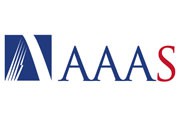The American Association for the Advancement of Science (AAAS) and The World Academy of Sciences (TWAS) invite expressions of interest for the first Train the Trainers Course on Science Diplomacy to be held on 26-28 August 2019 in Trieste, Italy
Background and objectives
The AAAS-TWAS Science Diplomacy training programme was established in 2014 to expose scientists, policymakers, diplomats and other interested stakeholders and institutions to science diplomacy concepts, explore key contemporary international policy issues relating to science, technology, environment and health, and build a skillset to allow for careers at the intersection of science and diplomacy. Over the past five years, we have trained several hundred emerging leaders from more than 50 countries to address science diplomacy from global and regional perspectives.
To scale up science diplomacy training and reach larger audiences around the world, AAAS and TWAS are launching the first Train the Trainers course to help organizations from all sectors (governments, universities, NGOs, scientific societies, national academies and multilateral organizations), as well as alumni from our previous courses, design and deliver contextually-relevant science diplomacy content to their home countries, institutions and communities. In addition, participants will benefit from networking and exchanging best practices with like-minded organizations for future collaborations.
Participants
This call is open to institutional representatives (not individual applicants) from any sector and region in the world, as well as AAAS-TWAS science diplomacy course alumni delivering (or planning to develop in the next year) science diplomacy training courses at their organizations. After taking part in the Train the Trainers course, participating institutions will be equipped with the knowledge, materials, instructional methodologies, and networks to develop and deliver a science diplomacy course tailored to their region, country or sector.
Application and selection process
- Applicants should complete the online form and attach the following supporting documents:
- Short curriculum vitae (max 3 pages).
- Statement of motivation describing their interest, prior experience and current and future plans for science diplomacy education and training at their organization. Applicants must demonstrate that they have a track record or concrete plans to lead science diplomacy training efforts within the next year (max 2 pages).
- Letter of endorsement from the head of the organization where they currently work, confirming that the applicant has been or will be tasked with developing science diplomacy training programming within the next year.
- AAAS and TWAS will cover travel and accommodation expenses for selected participants. Funding priority will be given to applications from Science & Technology Lagging Countries (STLCs) and Least Developed Countries (LDCs), who will be fully covered by the organizers. Selected participants from other countries will be required to partially or fully self-fund their participation as follows:
- Participants selected for partial funding support will be provided with board and lodging (up to 4 nights), and airport transfers, and will have to cover their flight to Trieste.
- Participants accepted in the course but not eligible for financial support will have to cover their flight and airport transfers, and will provide a registration fee of EUR 650 to cover tuition, board and lodging for up to 4 nights.
- A review committee established by AAAS and TWAS will determine the level of support that can be provided to each accepted participant.
- List of the 66 Science & Technology Lagging Countries (STLCs) and the 47 Least Developed Countries (LDCs). Countries with the asterisk are both STLC and LDC:
Afghanistan*, Angola*, Bangladesh*, Benin*, Bhutan*, Bolivia, Burkina Faso*, Burundi*, Cambodia*, Cameroon, Central African Republic*, Chad*, Comoros*, Congo, Côte d’Ivoire, Democratic Republic of Congo*, Djibouti*, El Salvador, Eritrea*, Eswatini, Ethiopia*, Equatorial Guinea, Gambia*, Ghana, Guatemala, Guinea*, Guinea-Bissau*, Haiti*, Honduras, Kenya, Kiribati*, Lao People’s Dem. Rep.*, Lesotho*, Liberia*, Madagascar*, Malawi*, Mali*, Mauritania*, Mongolia, Mozambique*, Myanmar*, Nepal*, Nicaragua, Niger*, Palestine (West Bank and Gaza Strip), Paraguay, Rwanda*, Sao Tome and Principe*, Senegal*, Sierra Leone*, Solomon Islands*, Somalia*, South Sudan*, Sri Lanka, Sudan*, Syria, Tajikistan, Tanzania*, Timor Leste*, Togo*, Tuvalu*, Uganda*, Vanuatu*, Yemen*, Zambia*, and Zimbabwe.
- We encourage applicants to seek additional funding support from their institutions.
- Women are especially encouraged to apply.
- To access the online application form, click here.
- Deadline to submit applications: 30 April 2019.
- Successful candidates will be informed by mid-May 2019.
- For any queries, contact sciencediplomacy@twas.org.

